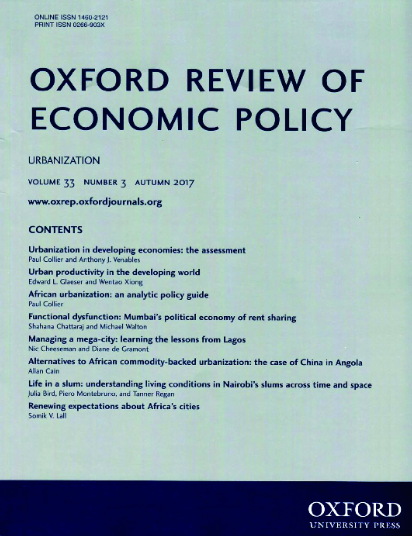不可能的三位一体的不可能?印度尼西亚的情况
IF 1.8
2区 经济学
Q2 ECONOMICS
引用次数: 3
摘要
不可能的三位一体表明,一个经济体不可能同时实现固定汇率、高资本流动性和独立货币政策,而不放弃其中之一。然而,本文考察了印尼从2009年量化宽松和2013年缩减恐慌中获得的经验,考虑了为什么印尼决策者无法按照三重困境使用政策,以及这一点的政策含义。印尼发现难以实施这一三重困境的政策选择有三个可能的原因:不同的货币政策目标、波动的浮动汇率和资产负债表效应。商品超级周期也发挥着外生作用,货币或汇率政策无法克服,同时影响财政政策、收入再分配、贸易平衡和汇率。总体而言,本文认为,货币政策本身可能不足以充分管理经济。其他杠杆和因素,如宏观审慎政策、财政政策、资本流动管理和制度质量,对于提高政策选择的有效性至关重要。本文章由计算机程序翻译,如有差异,请以英文原文为准。
The impossibility of the impossible trinity? The case of Indonesia
The impossible trinity suggests that an economy cannot simultaneously achieve a fixed exchange rate, high capital mobility, and independent monetary policy without abandoning one of these. However, This paper looks at Indonesia’s experiences from the 2009 QE and the 2013 taper tantrum, considering why Indonesian policy-makers were unable to use policies as per the trilemma, and the policy implications of this. There are three possible reasons why Indonesia found it difficult to implement this trilemma policy choice: differing monetary policy objectives, volatile floating exchange rates, and balance sheet effects. The commodity supercycle also plays an exogenous role, unable to be overcome by monetary or exchange rate policy while at the same time impacting fiscal policy, income redistribution, trade balance, and the exchange rate. Overall, this paper argues that monetary policy on its own is likely to be insufficient to manage the economy adequately. Other levers and factors, such as macroprudential policy, fiscal policy, capital flow management, and institutional quality, are critical to make the policy choices more effective.
求助全文
通过发布文献求助,成功后即可免费获取论文全文。
去求助
来源期刊

Oxford Review of Economic Policy
ECONOMICS-
CiteScore
12.50
自引率
1.50%
发文量
41
期刊介绍:
The Oxford Review of Economic Policy is a refereed journal which is published quarterly. Each issue concentrates on a current theme in economic policy, with a balance between macro- and microeconomics, and comprises an assessment and a number of articles. It gives a valuable appraisal of economic policies worldwide. While the analysis is challenging and at the forefront of current thinking, articles are presented in non-technical language to make them readily accessible to all readers. The Oxford Review is aimed at a wide audience including government, business and policy-makers, as well as academics and students. It is required reading for those who need to know where research is leading.
 求助内容:
求助内容: 应助结果提醒方式:
应助结果提醒方式:


